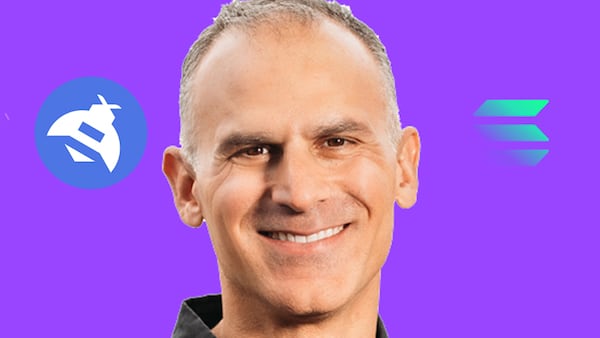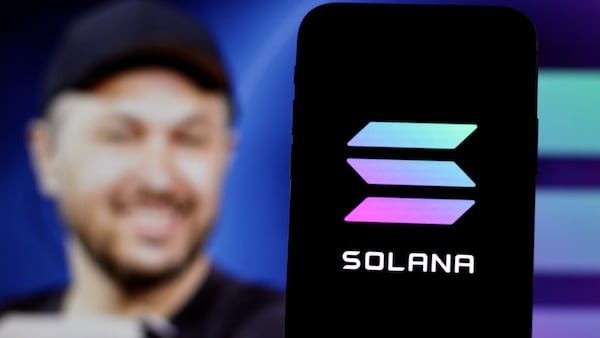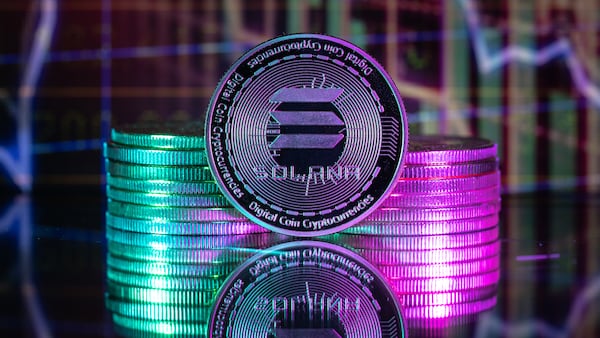- A new Solana project has tokenised lucrative oil and gas rights.
- It's the latest attempt to bring so-called real-world assets onto blockchains.
- But the only commodity to succeed as a tokenised product so far has been gold.
A new Solana-based project will bring another real-world asset onto the blockchain: the rights to oil and gas wells and the royalties that come with them.
The project, Elmnts, made beta software available to select users last week.
It will test crypto users’ appetite for real-world assets. Corporate giants such as BlackRock have tokenised almost $2 billion in US Treasury debt, according to RWA.xyz, a data platform tracking the asset class.
But other attempts to tokenise real-world assets have fizzled. A tokenised Uranium product that launched in November hasn’t seen more than $5,000 in daily trade volume since February, according to CoinGecko.
And the market in tokenised commodities — a sector dominated by Tether and Paxos, both of which offer tokenised gold — has remained flat over the past two years at around $800 million, according to RWA.xyz.
But royalties from oil and gas wells can bring a steady, lucrative new asset into crypto markets, one that isn’t tethered to the rest of the crypto market, where tokens often move in lockstep, Elmnts co-founder Odai Ammar told DL News.
“You now have an asset class where the yields are much more aligned with the crypto ethos,” he said.
“You have an asset class that does not require any capital calls, because you’re not incurring any expenses — that’s all on the oil operator. You just sit back and collect. In Texas, they call it ‘mailbox money.’”
Oil and gas
Elmnts’ four co-founders include James Pacheco, a former private-equity analyst at Goldman Sachs; Elias Moreno, a software engineer; and Erich Schmidt, an oil industry veteran who now owns a brewery in Midland, Texas, where 30% of the workforce is employed by the fossil-fuel industry.
Landowners who happen to sit atop an oil well can sell the rights to that oil without selling their land. The owners of those so-called mineral rights can then lease part of the land to companies that extract the oil. Owners are paid with a share of the companies’ profits.
“If the oil operator produced a million dollars [of oil] in this month, they take off the top 25% and distribute it to the mineral rights owners,” Ammar said.
Royalties from leasing mineral rights are most lucrative in the first several years, when the well is most productive, according to Ammar. Oil production — and, in turn, royalties — taper off in subsequent years, and wells are usually depleted after 20 years.
Elmnts’ first offering, a tokenised fund that owns the mineral rights to land where Chevron is operating, will feature yields “north of 20%,” Ammar said. Investors will be able to purchase “security tokens” that represent shares in that fund.
Security tokens and Atoms
Elmnts’ first product will be a permissioned, “grandpa- and grandma-friendly” platform where users can peruse different investment opportunities, according to Ammar.
Customers will be able to create an account with an email address and password — a rarity in the crypto economy, where they’re expected to connect to new platforms using preexisting crypto wallets.
Elmnts will create an “embedded wallet” during signup, and users will be able to invest using the USDC stablecoin or ACH, with Coinflow converting users’ cash to USDC for onchain settlement.
The tokenised oil and gas rights will be securities exempt from registration under the Securities and Exchange Commission’s Rule 506 (c), which allows for the sale of unregistered securities as long as the buyers are accredited investors and the company in question takes reasonable steps to verify their accreditation.
“We’re leveraging Solana’s token extensions to ensure compliance and program those guardrails from within,” Ammar said.
Elmnts will charge a management fee of 0.69%, Ammar said. And, as the sponsor of its tokenised funds, the company will earn 6.25% “in the form of equity on the front-end” rather than a cash commission fee.
The second product will be a lending protocol called Atoms, where Elmnts’ security tokens can be used as collateral for crypto loans.
Ammar thinks it will be popular with borrowers.
“I have a promissory token that’s earning me 15%, I didn’t have to go through any KYC, any AML … I’m from anywhere in the world, minus North Korea and the sanctioned countries that we will have to geo-block,” he said, referring to know-your-customer and anti-money-laundering requirements.
Elmnts said it will make beta software widely available “in the coming weeks.”
Aleks Gilbert is DL News’ New York-based DeFi correspondent. You can contact him at aleks@dlnews.com.









